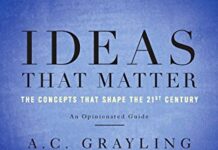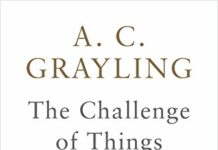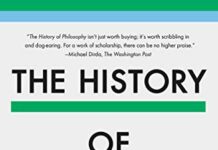
Ebook Info
- Published: 2001
- Number of pages: 160 pages
- Format: PDF
- File Size: 3.43 MB
- Authors: A. C. Grayling
Description
Ludwig Wittgenstein (1889-1951) was an extraordinarily original thinker, whose influence on twentieth-century thinking far outside the bounds of philosophy alone. In this engaging Introduction, A.C. Grayling makes Wittgenstein’s thought accessible to the general reader by explaining the nature and impact of Wittgenstein’s views. He describes both his early and later philosophy, the differences and connections between them, and gives a fresh assessment of Wittgenstein’s continuing influence on contemporary thought.
User’s Reviews
Editorial Reviews: Review `Lucidly and attractively written.’ Heythrop Journal`Anyone wanting to come to grips with the later Wittgenstein’s views on philosophy, his beliefs about the nature of thought and language, and his many unignorable (if sometimes muddled and often muddling) ideas in the philosophy of the mind could do no better than start here.’ Guardian`[Grayling] is to be congratulated on the success of his enterprise in a book which is a model of expository elgance … an admirably clear and concise introduction’ Philosophical Books About the Author A.C. Grayling is Lecturer in Philosophy at Birkbeck College, London, and Senior Research Fellow at St Anne’s College, Oxford. He is the author of An Introduction to Philosophical Logic, The Refutation of Scepticism, and Berkeley: The Central Arguments, and is also the editor of Philosophy: A Guide through the Subject and Philosophy 2: Further through the Subject.
Reviews from Amazon users which were colected at the time this book was published on the website:
⭐This is a lucid introduction to Wittgenstein’s thought. That is no mean feat, of course, but Grayling clarifies LW’s thought to a considerable degree and provides contexts for future reading. After a biographical introduction he divides his study into two principal sections—the TRACTATUS (the ‘early philosophy’) and the PHILSOPHICAL INVESTIGATIONS (the ‘later philosophy’). As most know, LW moved beyond his early views to a considerable degree, though Grayling also notes the continuities. He ends the study by positioning LW’s role/stature within the history of thought and the history of analytic philosophy.The reader should know that Grayling is not a Wittgenstein idolater. His considered judgment is that LW’s philosophy does not take us very far and that while he is a great philosophic ‘personality’ he is probably not up there with the Aristotles, Humes, Kants, Lockes, et al. He considers Frege’s and Russell’s impact to be more important for analytic philosophy.While quirky and austere in many ways, it should be noted that some of the ‘personality’ issues are quite substantive. LW did give up his considerable inheritance and dedicated himself to non-material things; his military service was distinguished; when he no longer believed that philosophy was redolent of possibilities he left it behind and did other useful work. (Compare, e.g., the academic careerists of capital-T Theory who went about for decades from conference to conference and named professorship to named professorship proclaiming that language and literature were incapable of yielding significant meaning.) LW also gave a good account of himself in light of the fierce upbringing and stark parenting that he received, parenting that could have been very destructive.While this little book is very useful in its exposition of LW’s thought, it should be supplemented with a number of the items listed in the author’s ‘further reading’ section. Grayling’s insight/argument that ultimately LW is a ‘poet’ more than a philosopher may be true. Freud and Marx are frequently described in those terms and LW’s oracular style and magisterial summary statements (on remaining silent when we must, on releasing the flies from the fly bottle, and so on) are memorable for their articulation as well as their content.
⭐Prof. Grayling was a big help to me in this book. I have been reading Wittgenstein’s Tractatus, and I have found it to be very difficult. This is the product of Wittgenstein’s efforts when young, following intense work with Bertrand Russell, and influenced by Frege’s work in logic, and also following a very difficult experience as a soldier in WWI. I thought that Prof. Grayling’s very clear ideas about the Tractatus were encouraging, and I intend to go back and read the Tractatus once again. This book on Wittgenstein first gives a short but illuminating biography of Wittgenstein before discussing the Tractatus. Following his presentation on the Tractatus, Prof. Grayling makes some critical remarks about this early work of Wittgenstein, and then launches into a discussion of Wittgenstein’s later more evolved thinking as he progressed beyond the Tractatus (although at one point in Wittgenstein’s life, he felt he had solved all the major problems in philosophy to his satisfaction with the writing of the Tractatus). Following a discussion of Wittgenstein’s later work, Prof. Grayling criticizes this later work, and tries to put Wittgenstein’s place in philosophy in some perspective. Wittgenstein was a stunningly original thinker, but he left his work in a position where a lot of it is difficult to interpret and ambiguous. In addition, I have found the Tractatus to be an obscure and esoteric work. Prof. Grayling argues that Wittgenstein’s ultimate place in philosophy is quite uncertain, despite the depth of his insights. I feel that for a very short book, Prof. Grayling’s account of Wittgenstein’s work is very helpful as a whole, and he has an interesting perspective that I think will help me to understand Wittgenstein’s writings better. I think this is a good book for someone like me starting a study of Wittgenstein’s work.
⭐This is an excellent overview of W’s extremely difficult philosophy, but the short biographical section doesn’t answer a question that’s of considerable importance to me.Was Wittgenstein mentally sound? There’s certainly more than a touch of megalomania in his preface to the TRACTATUS, where he claims that the book has resolved (read: dissolved) all the problems of philosophy. His life-style certainly sounds like that of a disturbed individual: mediocre employment by choice, periods of lengthy solitude, and worst of all, a hair-trigger temper and an indifference to other people that’s beyond mere arrogance.His outrage when his students gave an answer that he consider incorrect speaks to the first point in the last sentence. And there’s an incident recorded by F.R. Leavis that exemplifies the second.Leavis and W. went out for an evening stroll on the grounds of Cambridge. They decided to hire a boat and drift on the river. Leavis realized that after a certain point the boat had to be returned to the chap in charge so he could close up for the night. He brought this to W’s attention, who was apparently totally indifferent to the fact. He just didn’t think the time of the boat keeper was worth considering if he preferred to stay on the water.I can’t help thinking W., in “ordinary language” terms, had a “bolt loose”. I don’t want to read a full-dress biography like Ray Monk’s to find out if this might be true, and I realize it doesn’t affect the truth or falsity of his philosophy, but wouldn’t it be ironic if a mental case gave us the answer to all philosophical questions?
⭐A couple of examples to remind us of our familiar disappointment with the aridity of British philosophy and with the writing about it, the fact that it has little to do with how we live: “Jill loves Jim” and “This table is brown”. You can see how deeply the reader would already be engaged. Then “…how everything actually is in reality depends on what is and what is not the case.” And “If a picture shows how things are in reality, it ‘agrees’ with that reality, and we therefore say that it is a correct depiction.” Well, “a model of expository elegance…sound and lucid…lucidly and attractively (sic) written.” These clever critics show their deep concern for and appreciation of Wittgenstein, and for and of A.C. Grayling by their obvious understanding of a book about Wittgenstein and his writing. Voilà. And then, a bit better, on to the “Investigations”. “Here, the meaning of an expression is the use to which it can be put in one or another of the various language games constituting language….the meaning of a word is its use in the language.” So, after 90 pages of reading not much that I didn’t already know (though not, I’m happy to say, expressed in the same terms) didn’t already know and use in a life-time of teaching, I come to the later pages: “there’s an enormous diversity of rules governing the use of expressions in language.” (You have to get used to the “lucidity” and “elegance” of “rules” and “governing”.) A mystery how I managed to teach A level, and even O level English without having read Wittgenstein. But then it’s a mystery how many angels can dance on the head of a pin.
⭐For a non-specialist, this is a very understandable review of Wittgenstein’s ideas and writings. A counter balance to the cult following of his Blue and Brown books.
⭐Good service
⭐written with amazing clarity. his ultimate view is that wittgenstein is less important in philosophy than frege and russell. i’m not qualified to contradict, but it was convincing to me.
⭐Grayling always writes clearly and this book is no exception.
Keywords
Free Download Wittgenstein: A Very Short Introduction in PDF format
Wittgenstein: A Very Short Introduction PDF Free Download
Download Wittgenstein: A Very Short Introduction 2001 PDF Free
Wittgenstein: A Very Short Introduction 2001 PDF Free Download
Download Wittgenstein: A Very Short Introduction PDF
Free Download Ebook Wittgenstein: A Very Short Introduction





